
No data
简体中文
繁體中文
English
Pусский
日本語
ภาษาไทย
Tiếng Việt
Bahasa Indonesia
Español
हिन्दी
Filippiiniläinen
Français
Deutsch
Português
Türkçe
한국어
العربية
Do you want to know which is the better broker between eToro and Saxo ?
In the table below, you can compare the features of eToro , Saxo side by side to determine the best fit for your needs.
You can determine the reliability and credibility of a broker by checking four factors:
1.Forex broker introduction。
2.Are the transaction costs and expenses of etoro, saxo lower?
3.Which broker is safer?
4.Which broker provides better trading platform?
Based on these four factors, we can compare which is reliable. We have broken down the reasons as follows:
| eToro | Basic Information |
| Founded in | 2007 |
| Headquarters | United Kingdom |
| Regulations | CySEC, FCA, ASIC |
| Tradable Assets | Stocks, Cryptocurrencies, Currencies, Commodities, ETFs |
| Minimum Deposit | $10 |
| Trading Fees | Commission-free trading, Spreads from 0.75 pips on EUR/USD |
| Non-Trading Fees | Withdrawal fee of $5, Inactivity fee of $10/month after 12 months of inactivity |
| Leverage | Up to 1:30 for retail clients, up to 1:400 for professional clients |
| Trading Platforms | eToro proprietary platform, MetaTrader 4 |
| Mobile Trading | Yes, available on iOS and Android |
| Customer Support | 24/5 live chat, email support |
| Educational Resources | Social trading, educational videos, blog articles, eToro Academy |
| Demo Account | Yes, unlimited time |
| Other Features | CopyTrader, Popular Investor Program, eToro Wallet |
eToro is a multi-asset social trading platform that has gained widespread popularity among investors, traders, and social media enthusiasts since its inception in 2007. It offers users access to a wide range of financial instruments, including stocks, cryptocurrencies, forex, indices, and commodities, among others. The platform provides a user-friendly interface that caters to both novice and experienced traders alike, making it one of the most popular trading platforms on the market.
One of eToro's standout features is its social trading capabilities, which allow users to copy the trades of successful traders and build their investment portfolios. The platform has a large community of traders who share insights, strategies, and knowledge, making it an excellent learning resource for traders looking to improve their skills.
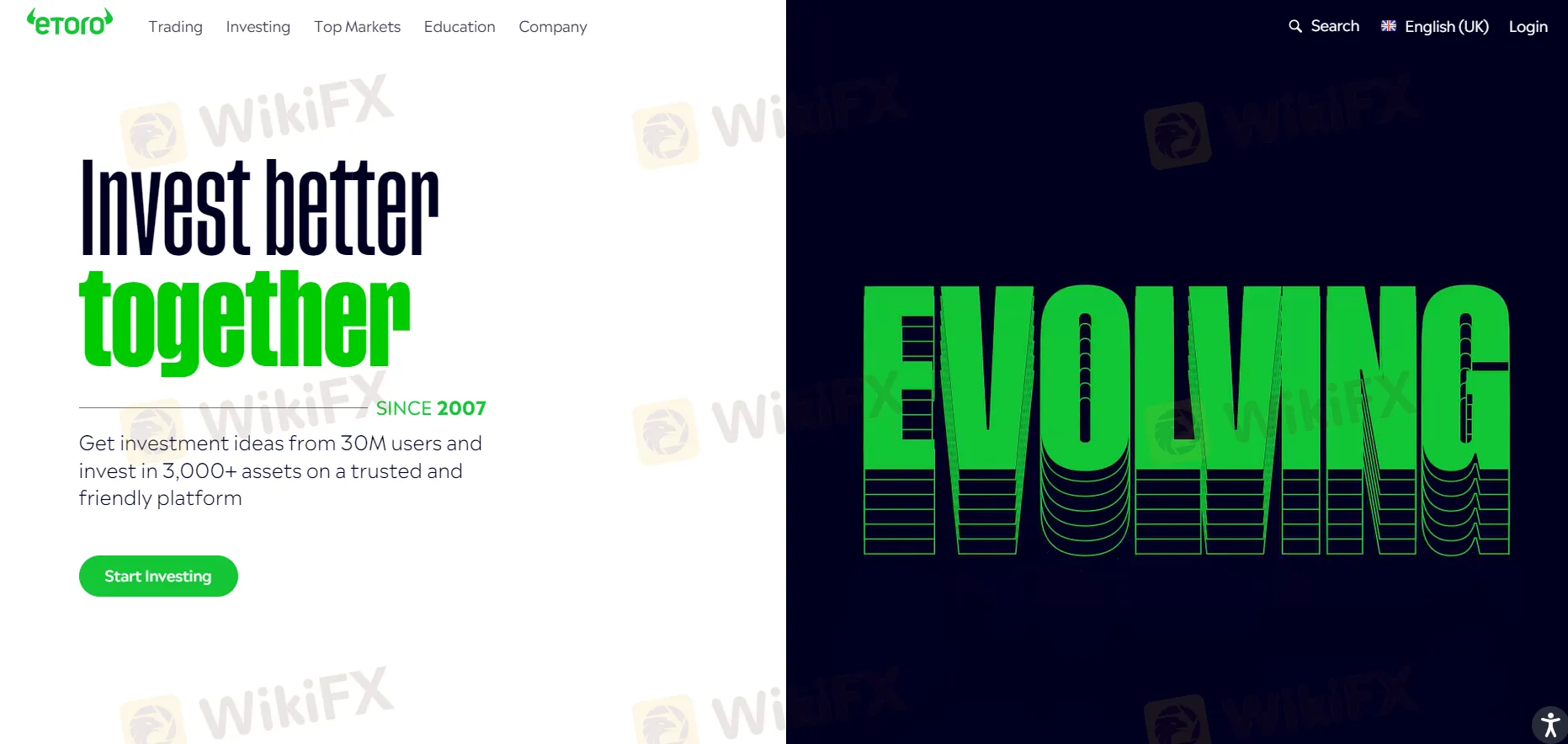
eToro is a legitimate and regulated online brokerage firm that has been operating since 2007. It is licensed and regulated by several reputable financial authorities, including the Financial Conduct Authority (FCA) in the UK, the Australian Securities and Investments Commission (ASIC), and the Cyprus Securities and Exchange Commission (CySEC). The company is also a member of the Investor Compensation Fund, which provides additional protection for traders' funds. However, as with any investment platform, there are risks involved in trading, and traders should always be aware of the potential risks and take steps to protect their investments.
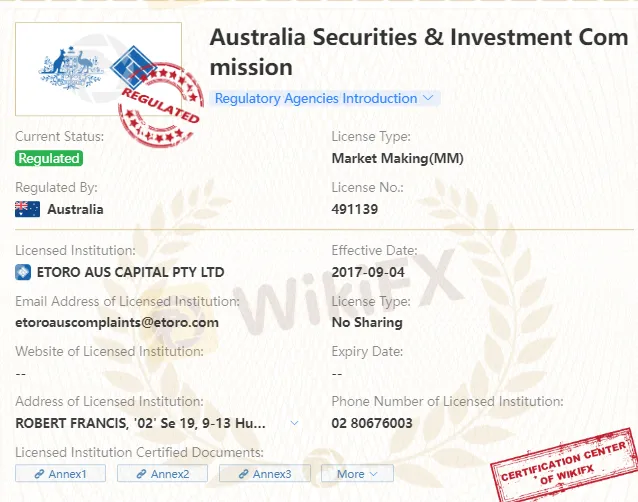
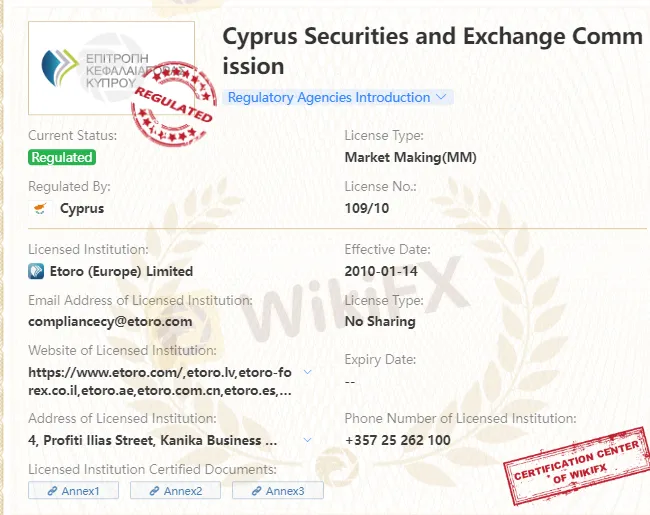
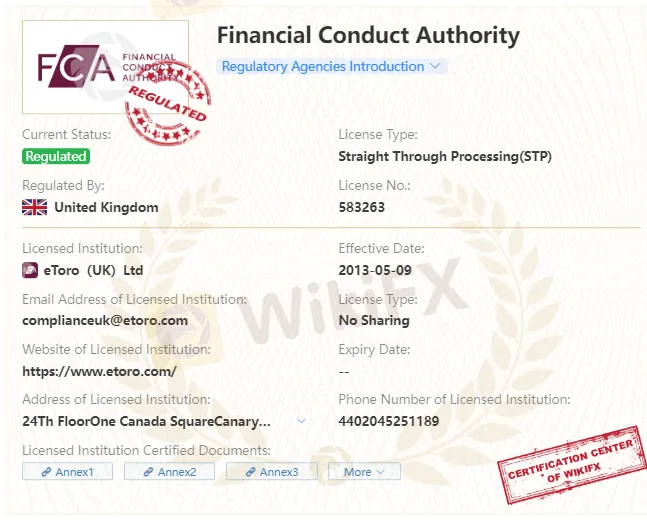
eToro's user-friendly interface, range of trading assets, and social trading features have made it popular among both beginner and experienced traders. However, as with any trading platform, eToro has its pros and cons, which potential users should consider before signing up. In this section, we will discuss the advantages and disadvantages of using eToro as a trading platform.
| Pros | Cons |
| User-friendly and easy-to-use platform | Higher spreads compared to some other brokers |
| Regulated by reputable financial authorities | Limited range of tradable assets |
| Copy trading and social trading features | Limited research and analysis tools |
| Wide range of payment methods | Inactivity fee charged after 12 months of inactivity |
| Commission-free trading on stocks and ETFs | Withdrawal fee of $5 |
| Demo account available for practice | Limited customer support options |
Market Instruments
eToro offers a wide range of financial instruments for traders to choose from, covering various markets globally. Traders can access more than 2,400 assets, including popular currencies, commodities, indices, and stocks from exchanges around the world. Furthermore, eToro enables traders to trade cryptocurrency, such as Bitcoin and Ethereum, which has become a popular asset class in recent years due to its high volatility and potential for substantial profits. With this wide range of instruments available, traders can diversify their portfolios and explore various markets to find the best investment opportunities.

| Pros | Cons |
| Wide variety of assets including stocks, cryptocurrencies, commodities, forex, and more | Limited selection of options and futures contracts |
| Commission-free trading on most instruments | Limited research tools for fundamental analysis |
| Availability of social trading, allowing for copy trading and following other traders' strategies | Limited access to less popular or niche assets |
| Option to trade fractional shares for stocks, making it accessible to investors with small capital | Limited trading hours on certain assets, such as cryptocurrencies |
| Lack of transparency in pricing structure for some assets |
eToro provides traders with two primary types of accounts to choose from, namely the Retail and Professional accounts. These account types differ in various aspects, such as trading features, account requirements, leverage limits, and the level of regulatory protection they offer.
eToro's Retail account is suitable for most traders and investors. This account type requires a minimum deposit of $500 and provides access to all eToro's trading instruments, including cryptocurrencies, stocks, ETFs, commodities, and more. Retail account holders can also benefit from eToro's social trading features, which allow users to follow and copy other successful traders on the platform. However, retail account holders are limited to a maximum leverage of 1:30, as per regulatory requirements.
eToro's Professional account is designed for experienced traders who meet certain criteria, such as having a minimum of two years of trading experience and meeting certain financial thresholds. This account type provides access to higher leverage of up to 1:400, and allows users to benefit from reduced margin requirements and negative balance protection. However, professional account holders are not eligible for certain investor protection rights, such as compensation schemes, as they are deemed to have a higher level of trading knowledge and experience.

| Aspects | Pros | Cons |
| Account Types | Offers both retail and professional accounts | Professional accounts require certain qualifications |
| Minimum Deposit | Low minimum deposit requirement for retail account | High minimum deposit requirement for professional account |
| Commission | No commission on trades for most assets | Higher spreads compared to other brokers |
| Leverage | Up to 1:30 for major currency pairs | Limited leverage options for professional accounts |
| Platform | User-friendly platform with social trading features | Limited customization options |
| Customer Support | 24/7 customer support in multiple languages | Phone support only available during market hours |
To open an account with eToro, you need to follow these steps:
Go to the eToro website and click on the “Join Now” button.
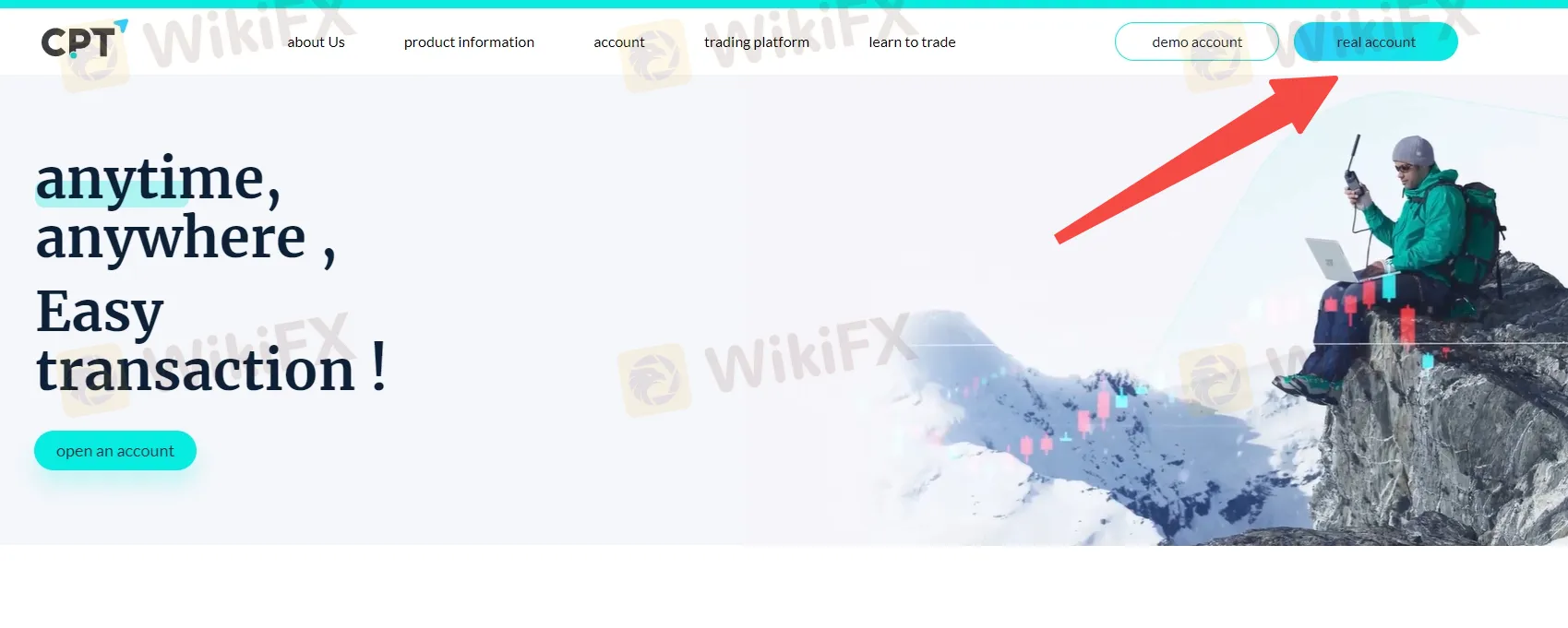
Enter your personal information, including your name, email address, and phone number.
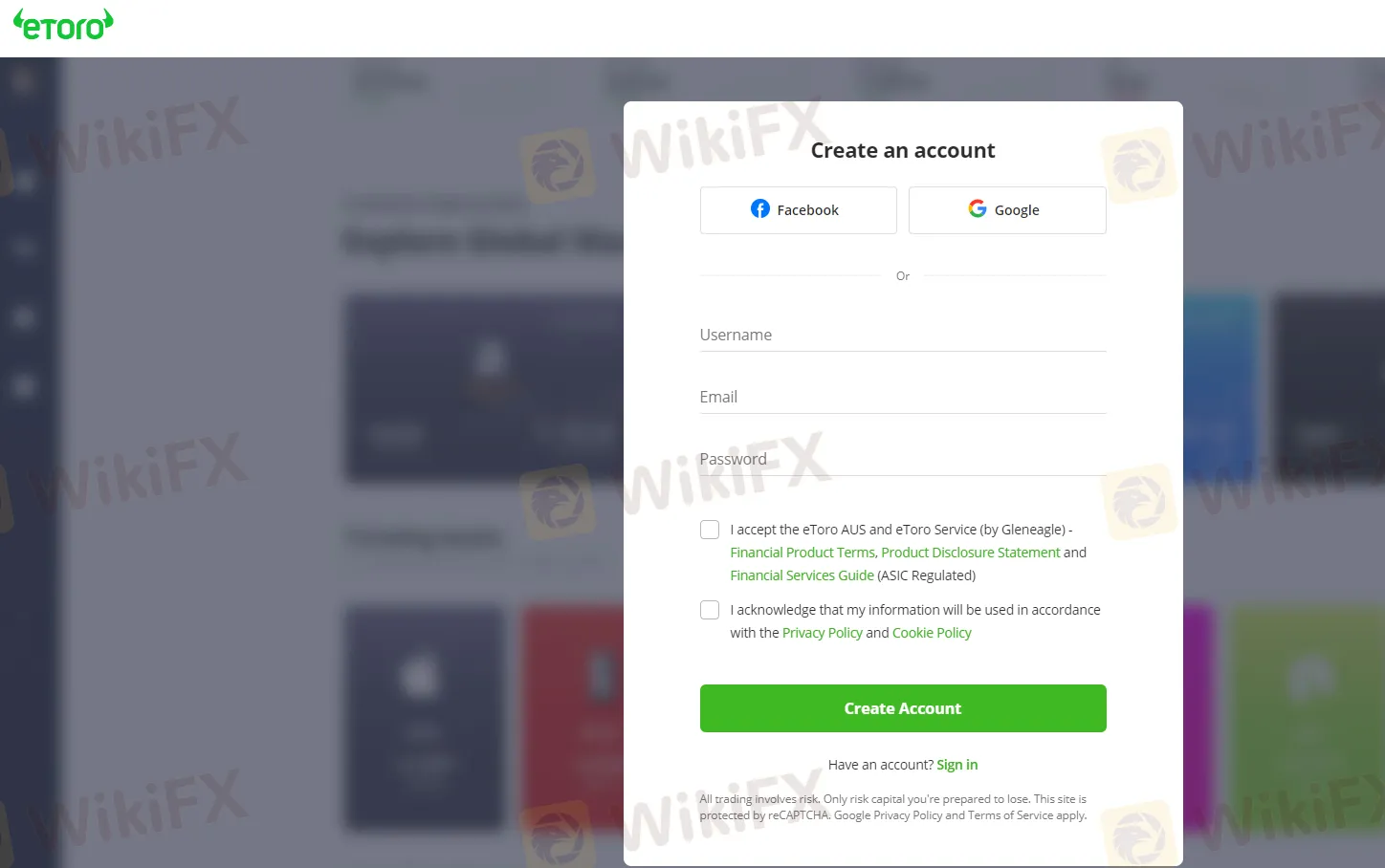
Verify your email address by clicking on the verification link sent to your email. Provide additional information, including your date of birth, address, and tax ID number. Agree to the terms and conditions and submit your application.
Wait for eToro to review and approve your account, which usually takes a few minutes to a few business days.
After approval, you can fund your account with preferable payment methods and then start your real trading with this broker.
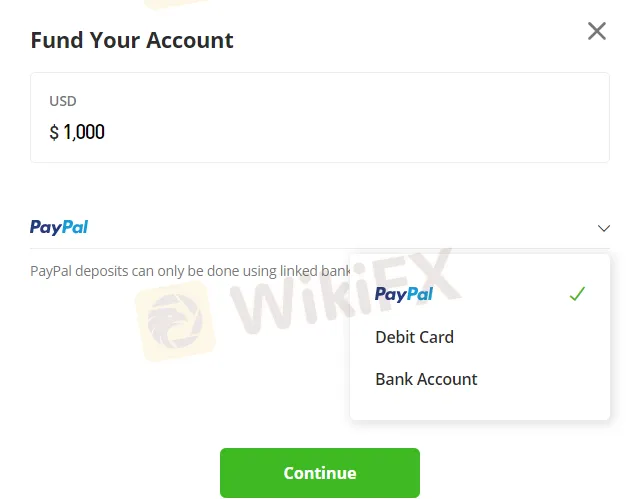
eToro offers a demo account for traders who want to practice trading strategies without risking real money. The eToro demo account provides $100,000 in virtual money and is valid for an unlimited amount of time, allowing traders to familiarize themselves with the platform and practice their trading skills.
To open a demo account, traders can simply sign up for an eToro account and select the option to use the demo account. It's important to note that the eToro demo account does not require any deposit or funding, making it a risk-free way to test out the platform.
When using the demo account, traders should keep in mind that the virtual money provided is not real, and any profits or losses made are also not real. It's also important to note that while the demo account provides a good introduction to the platform, it may not accurately reflect the actual market conditions and trading experience.
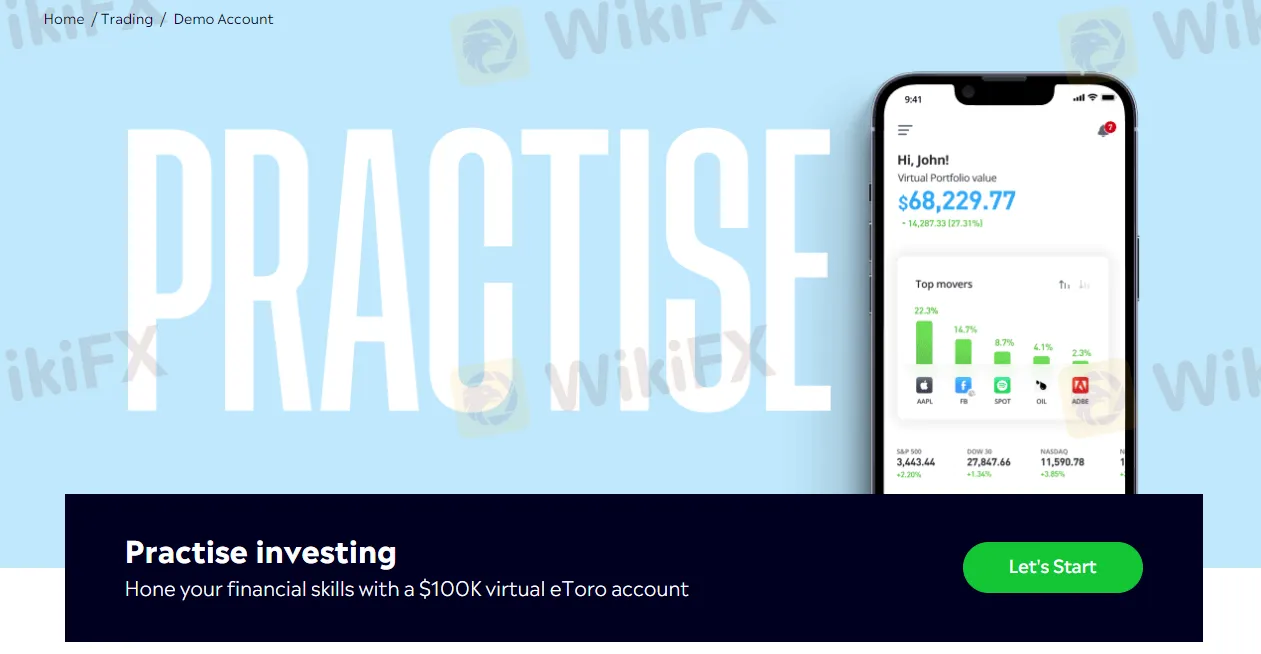
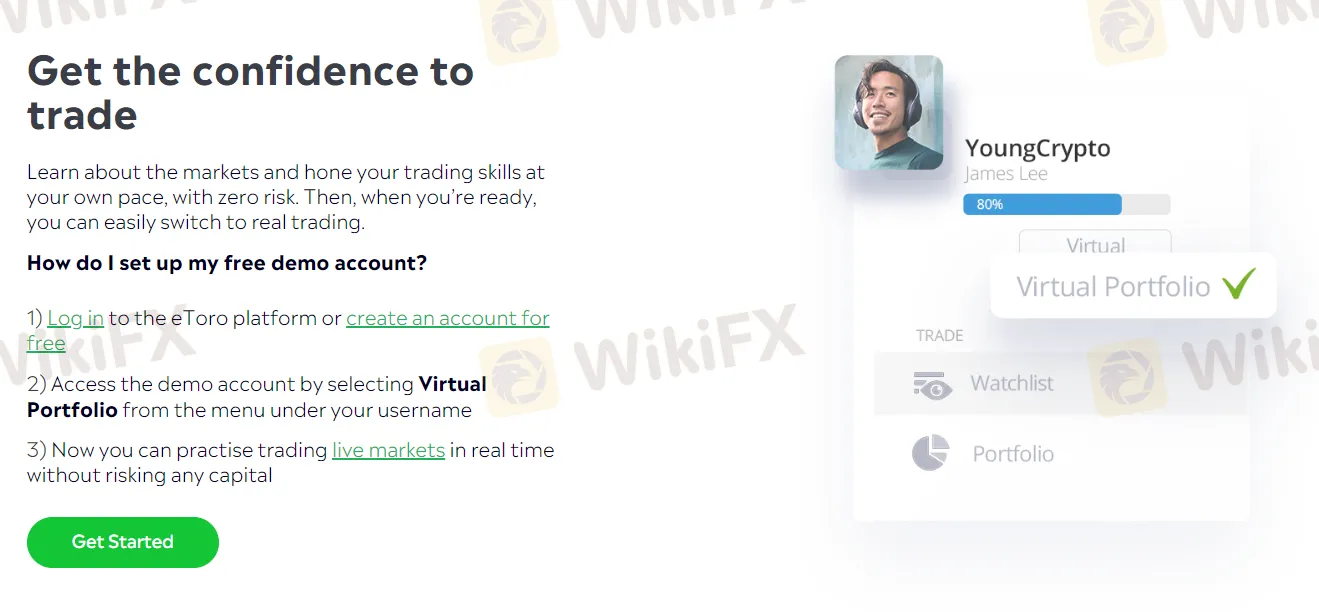
eToro offers leverage for trading various financial instruments. The maximum leverage provided by eToro varies depending on the instrument and the jurisdiction of the client. For example, for major forex pairs, eToro offers leverage up to 1:30 for retail clients and up to 1:400 for professional clients. For commodities such as gold and silver, leverage can be up to 1:20 for retail clients and up to 1:100 for professional clients. For stocks, eToro offers leverage up to 1:5 for both retail and professional clients. It is noted that high leverage can amplify your potential returns, but more importantly, it can increase your risks.
eToro's spreads vary depending on the asset being traded. The platform charges variable spreads, which means that the spread can widen or narrow depending on market conditions. The typical spread for major currency pairs such as EUR/USD and GBP/USD is around 3 pips during normal market conditions. However, this can vary depending on market volatility and liquidity.
For other assets, such as cryptocurrencies and commodities, eToro's spreads are generally higher. For example, the spread for Bitcoin can range from 0.75% to 5% depending on market conditions.

| Pros | Cons |
| Zero commission on stock and ETF trading | Wider spreads compared to other brokers |
| Competitive spreads on major forex pairs | Overnight fees charged on leveraged positions |
| No hidden fees or surprises | Limited selection of exotic currency pairs |
| Transparent pricing | Higher spreads on cryptocurrencies |
| Tight spreads on commodities and indices | Spreads can widen during volatile market conditions |
In addition to spreads and commissions, eToro also imposes a few non-trading fees that traders should take into consideration before trading on this platform. These fees include:
Withdrawal fee: eToro charges a withdrawal fee of $5 per withdrawal. This fee is relatively low compared to other brokers.
Inactivity fee: If you don't log in to your eToro account for 12 months, an inactivity fee of $10 per month will be charged to your account. This fee is charged until you log in again or until your account balance reaches zero.
Overnight fees: eToro charges overnight fees or rollover fees for positions held open overnight. The amount of the fee depends on the instrument traded, the direction of the position, and the size of the position.
Currency conversion fee: If you deposit funds in a currency different from the base currency of your account, eToro charges a currency conversion fee. The fee is 0.5% of the deposited amount, and it's calculated based on the exchange rate at the time of the conversion.
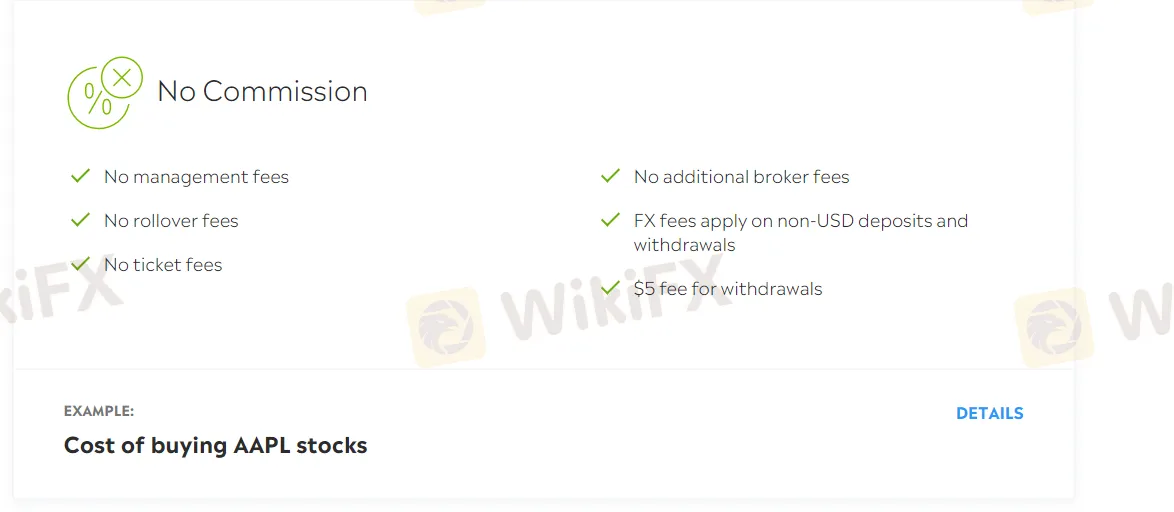
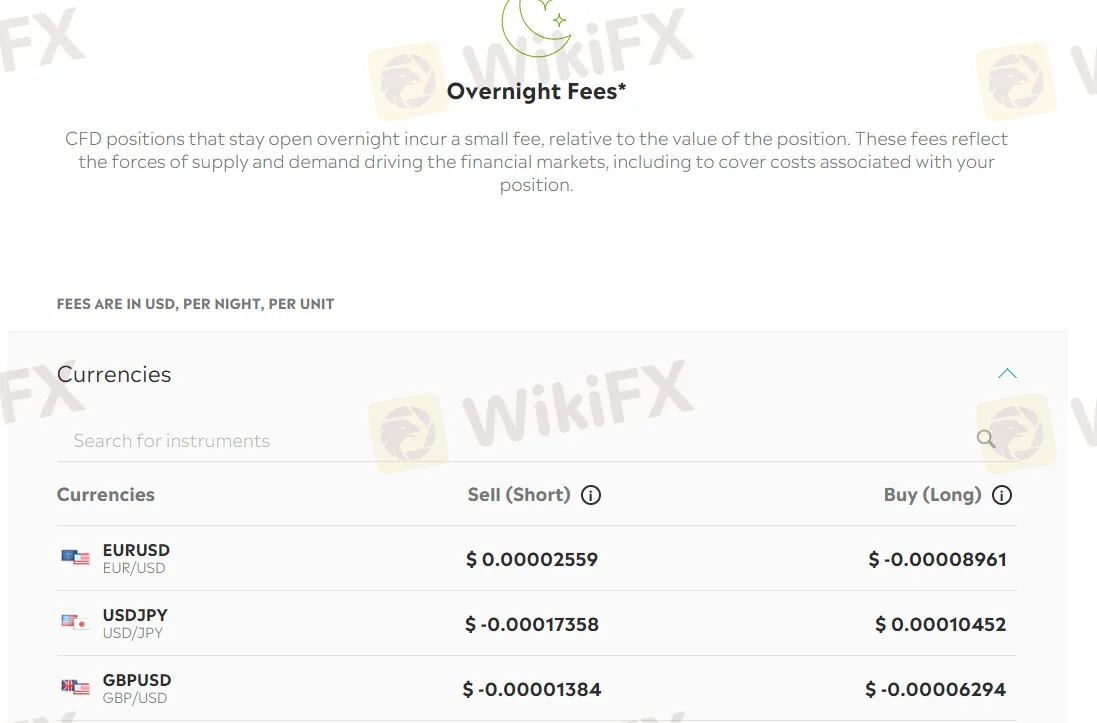
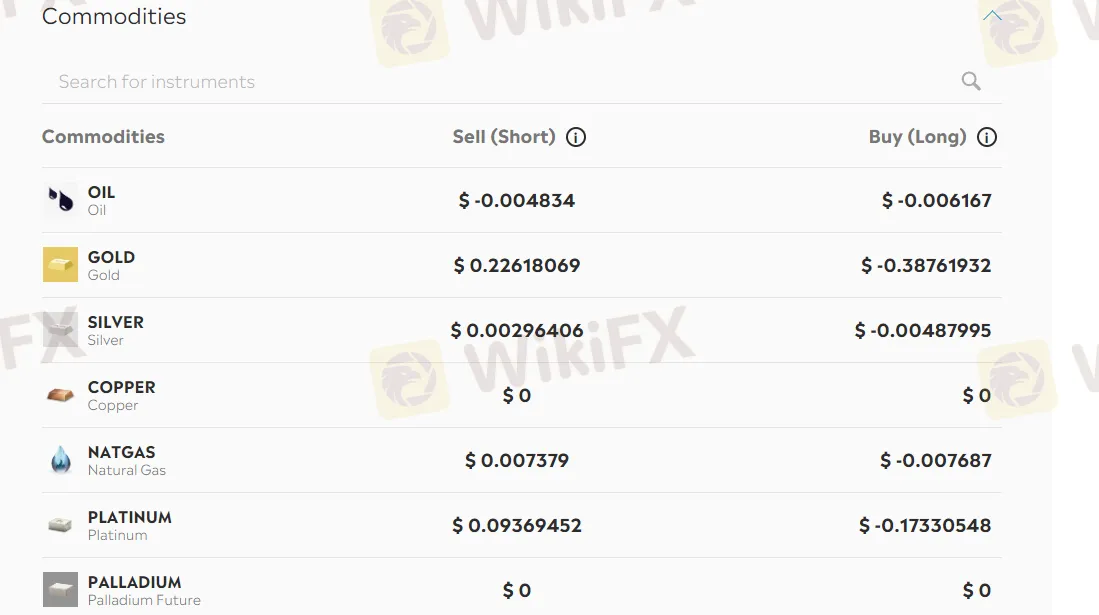

| Pros | Cons |
| No commissions on stock and ETF trading | Higher spreads compared to other brokers |
| No deposit fees | High withdrawal fees |
| No account maintenance fees | Inactivity fee after 12 months of inactivity |
| No fees for using the CopyTrader feature | Limited payment methods |
| No fees for currency conversion | Overnight fees for positions held overnight |
| High fees for using PayPal as a payment method |
eToro offers its proprietary trading platform, which is designed to be user-friendly and intuitive, particularly for novice traders. The platform provides a variety of tools and features, including real-time market data, advanced charting tools, and an easy-to-use order entry system.
One of the most notable features of the eToro platform is its social trading functionality, which allows users to follow and copy the trades of successful traders. This feature is particularly appealing to new traders who may lack the knowledge or experience to make their own trades.
In addition to its proprietary platform, eToro also supports the popular MetaTrader 4 (MT4) platform, which is widely used by traders around the world. MT4 is known for its advanced charting capabilities, extensive library of technical indicators, and the ability to automate trading strategies through the use of Expert Advisors (EAs).
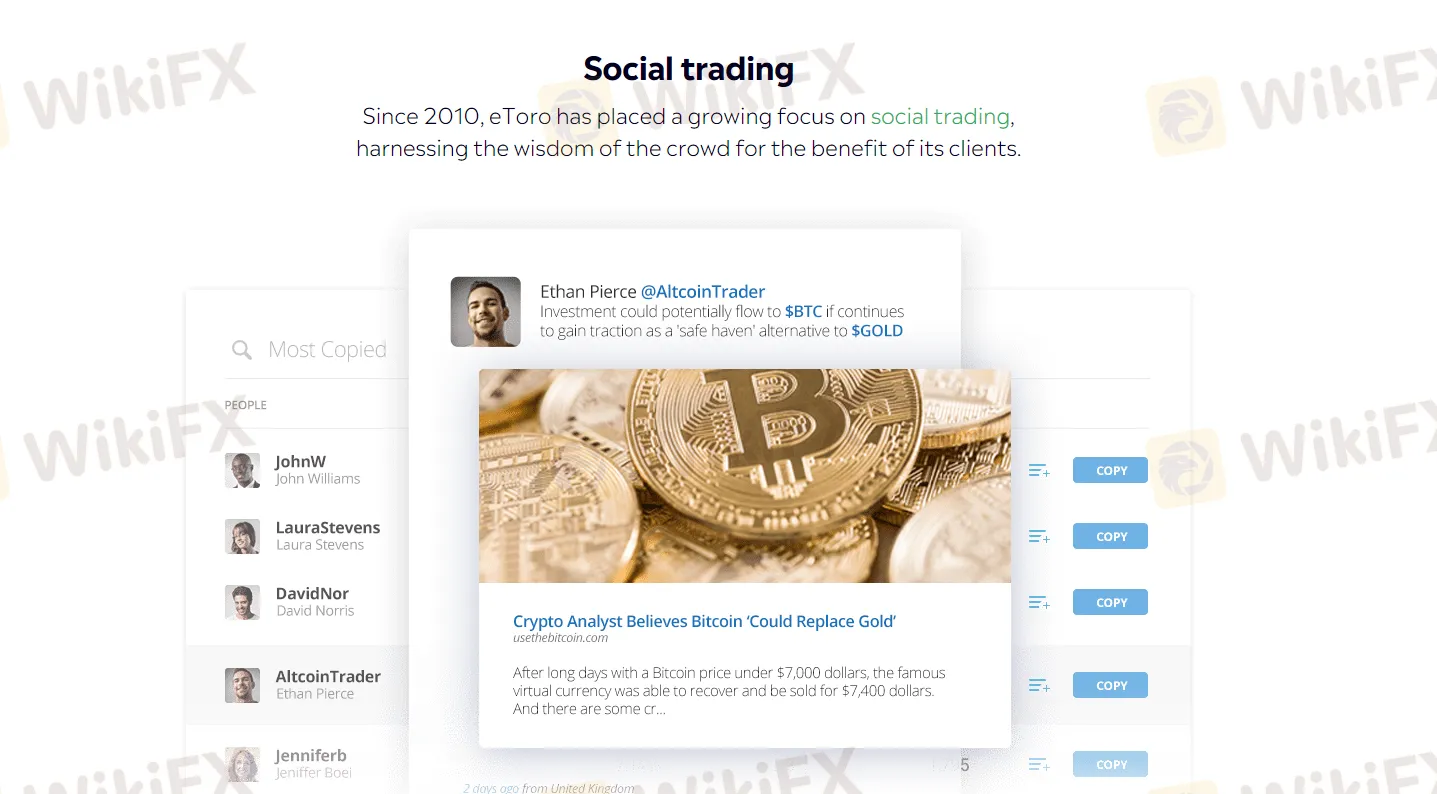
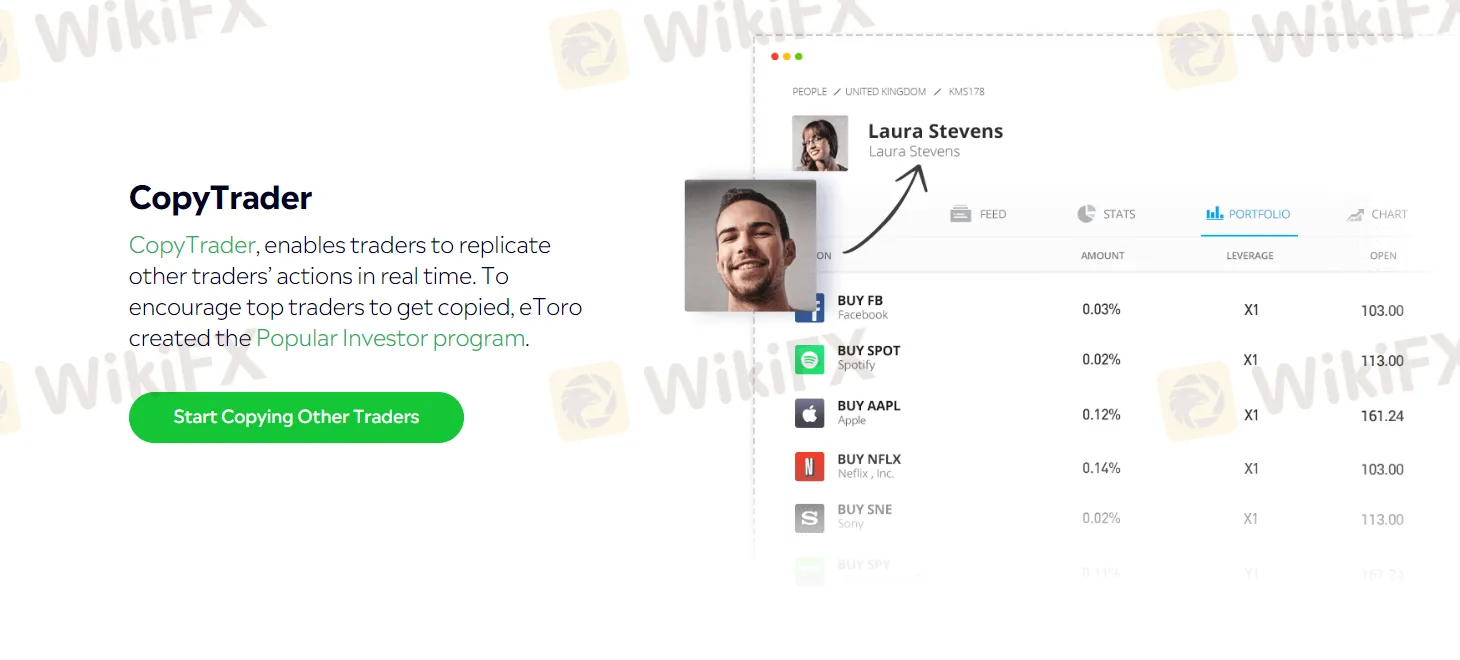
Here is a comparison table of the trading platform offered by eToro, FP Markets and Exness:
| Broker | Trading Platform | Desktop | Web-based | Mobile |
| eToro | eToro Platform | ✔️ | ✔️ | ✔️ |
| FP Markets | MetaTrader 4 (MT4) | ✔️ | ✔️ | ✔️ |
| Exness | MetaTrader 4 (MT4) | ✔️ | ✔️ | ✔️ |
eToro accepts multiple payment methods, including credit/debit cards, bank transfers, and e-wallets such as PayPal, Neteller, and Skrill. The minimum deposit amount is $10, which is relatively low compared to other brokers in the industry. Deposits are usually processed instantly or within one business day, depending on the payment method. eToro does not charge any deposit fees, but some payment providers may have their own fees.
eToro allows you to withdraw funds using the same payment methods as deposits.The minimum withdrawal amount is $30, and there is a withdrawal fee of $5.Withdrawals are usually processed within one business day, but it may take longer for bank transfers.Before making a withdrawal, you need to verify your identity and complete the necessary KYC (Know Your Customer) procedures. eToro also has a policy of returning funds to the original payment method used for deposits, whenever possible.
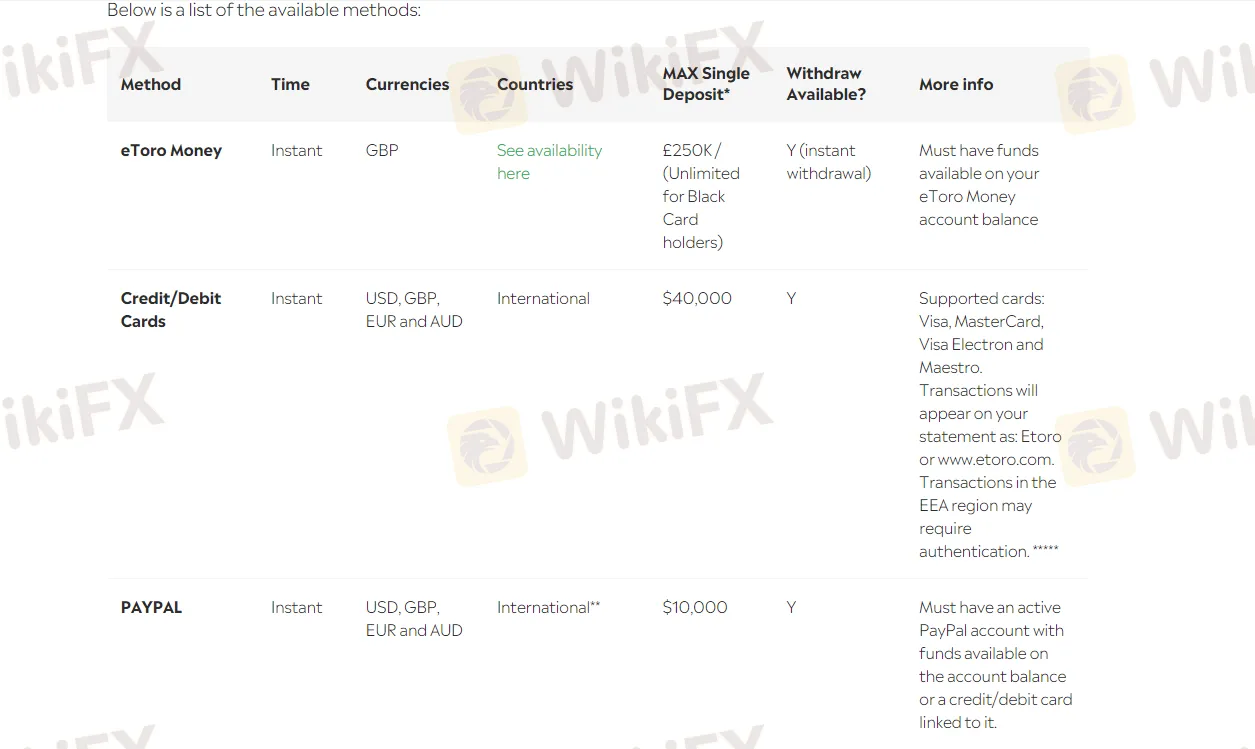
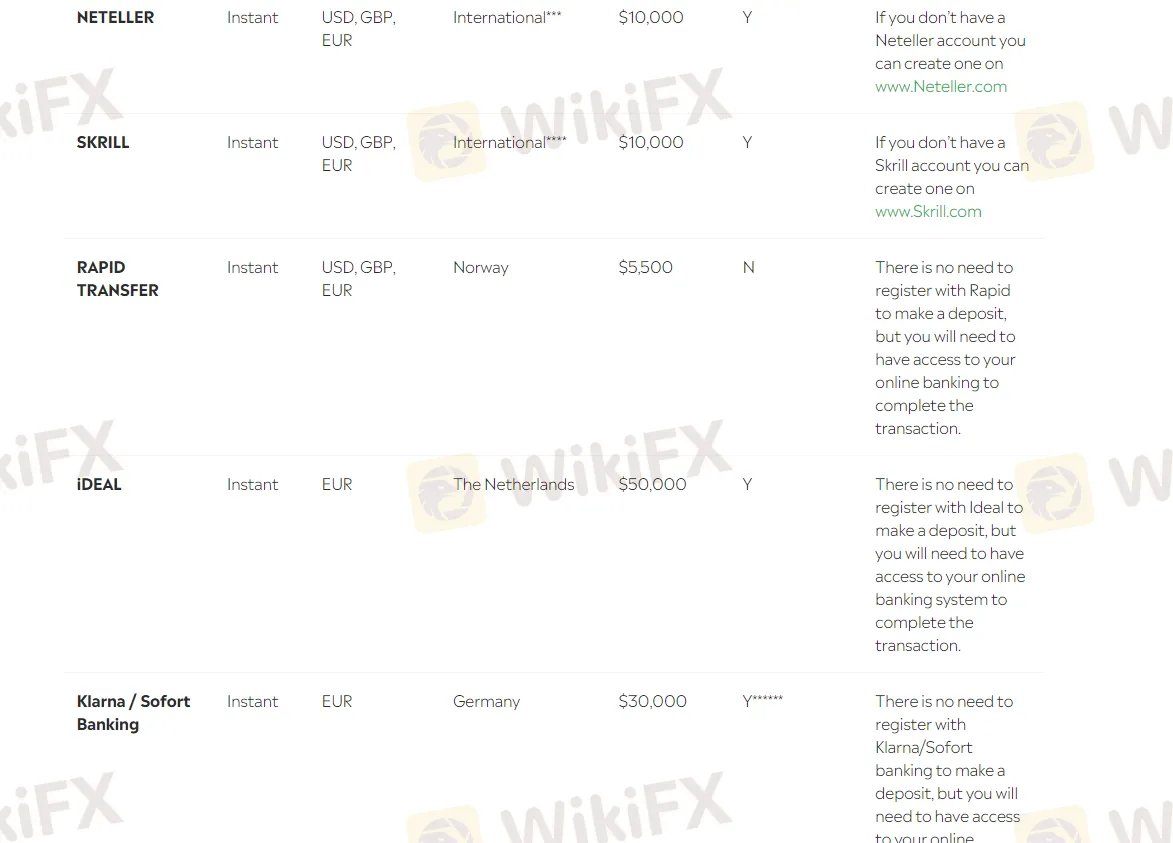
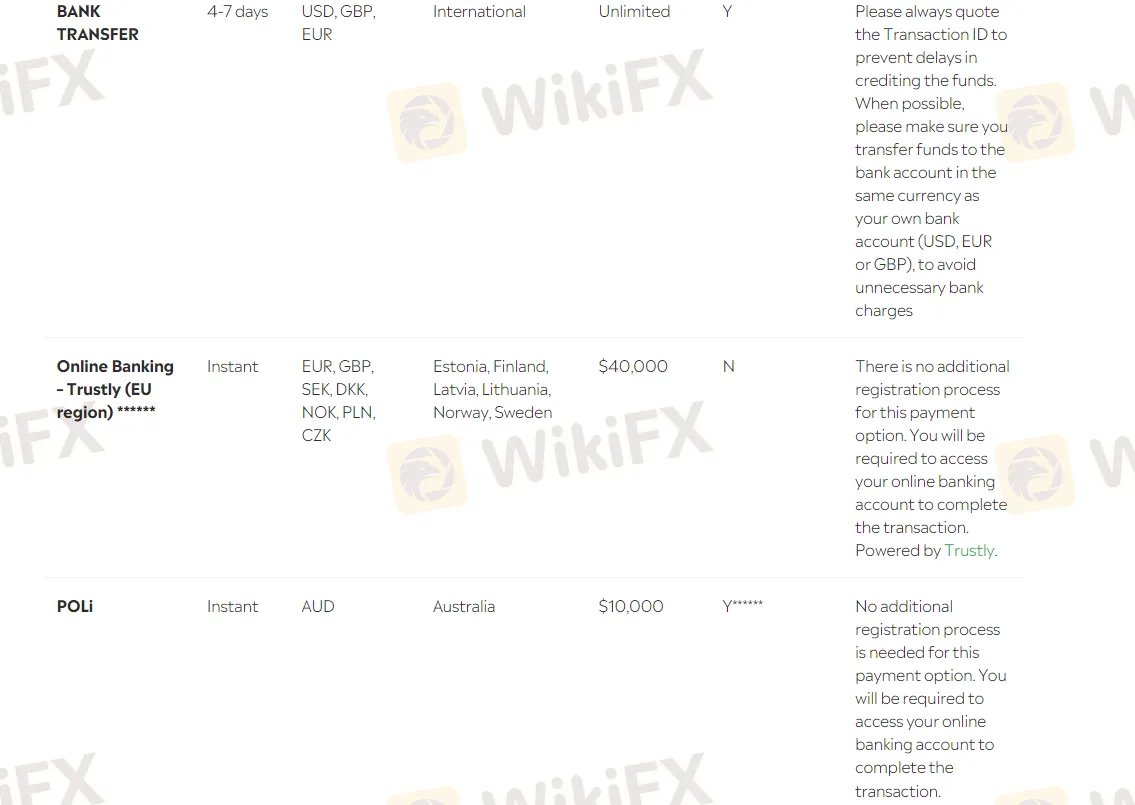

| Pros | Cons |
| Wide range of payment methods available including credit/debit cards, PayPal, and bank transfer | Withdrawal fee of $5 per transaction |
| Quick and easy deposit process with most methods being processed instantly | Minimum withdrawal amount of $30 |
| No deposit fees charged by eToro | Limited number of currencies available for deposits and withdrawals |
| Supports deposits and withdrawals in multiple currencies | Withdrawal processing time can take up to 7 business days |
| Allows users to set up multiple payment methods for convenience | Third-party fees may be charged by payment processors |
| Negative balance protection ensures that users cannot lose more than they have deposited | Users may need to provide additional verification documents for withdrawals |
Customer support is an important aspect of any online brokerage firm, and eToro is no exception. eToro offers various channels for customers to get in touch with its support team. These channels include:
Live chat: This is available 24/5, Monday to Friday. It is the fastest and most efficient way to get support.
Email: Customers can send an email to the eToro support team. The response time is usually within 24 hours.
Phone: Customers can also call the support team during office hours. eToro provides local phone numbers for various countries.
Social media: eToro has a presence on various social media platforms, including Twitter and Facebook. Customers can use these platforms to get in touch with the support team.
FAQ section: eToro offers a comprehensive FAQ section on their website that covers a wide range of topics related to their services, trading, account management, and more. The FAQ section is organized into categories, making it easy for users to find answers to their questions quickly.
When it comes to educational resources, Toro offers a variety of educational content to help traders improve their skills and knowledge of the financial markets.
These resources include:
eToro Academy: This is an online education portal that provides traders with a wide range of educational materials, including articles, videos, webinars, and courses on various topics such as trading strategies, market analysis, risk management, and more.
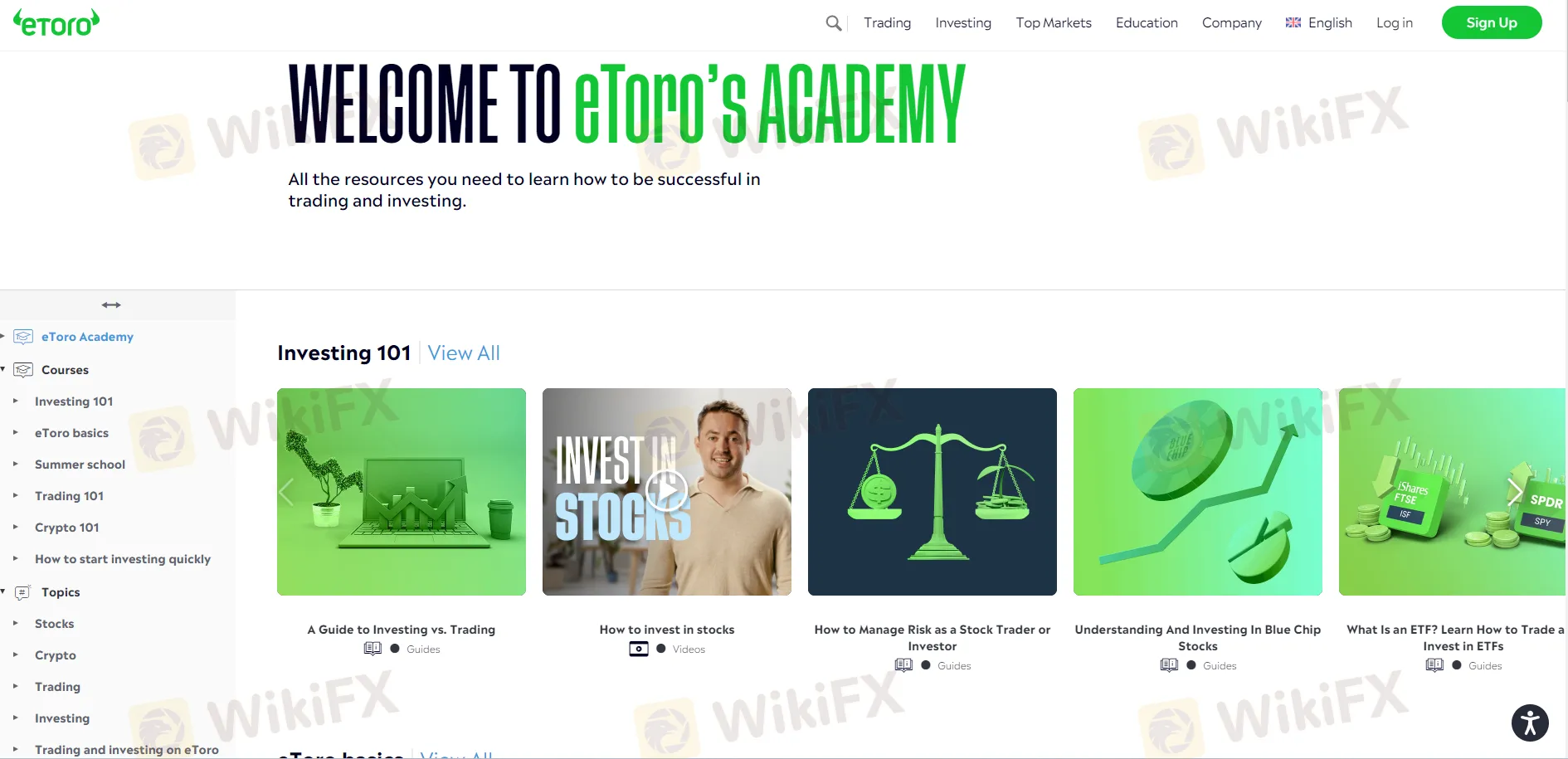
Trading Guides: eToro also offers a series of trading guides that provide in-depth information on various trading topics, including stocks, commodities, currencies, and indices.
Market News and Analysis: eToro provides traders with up-to-date news and analysis on the financial markets. This includes daily market updates, weekly market analysis, and other educational content.
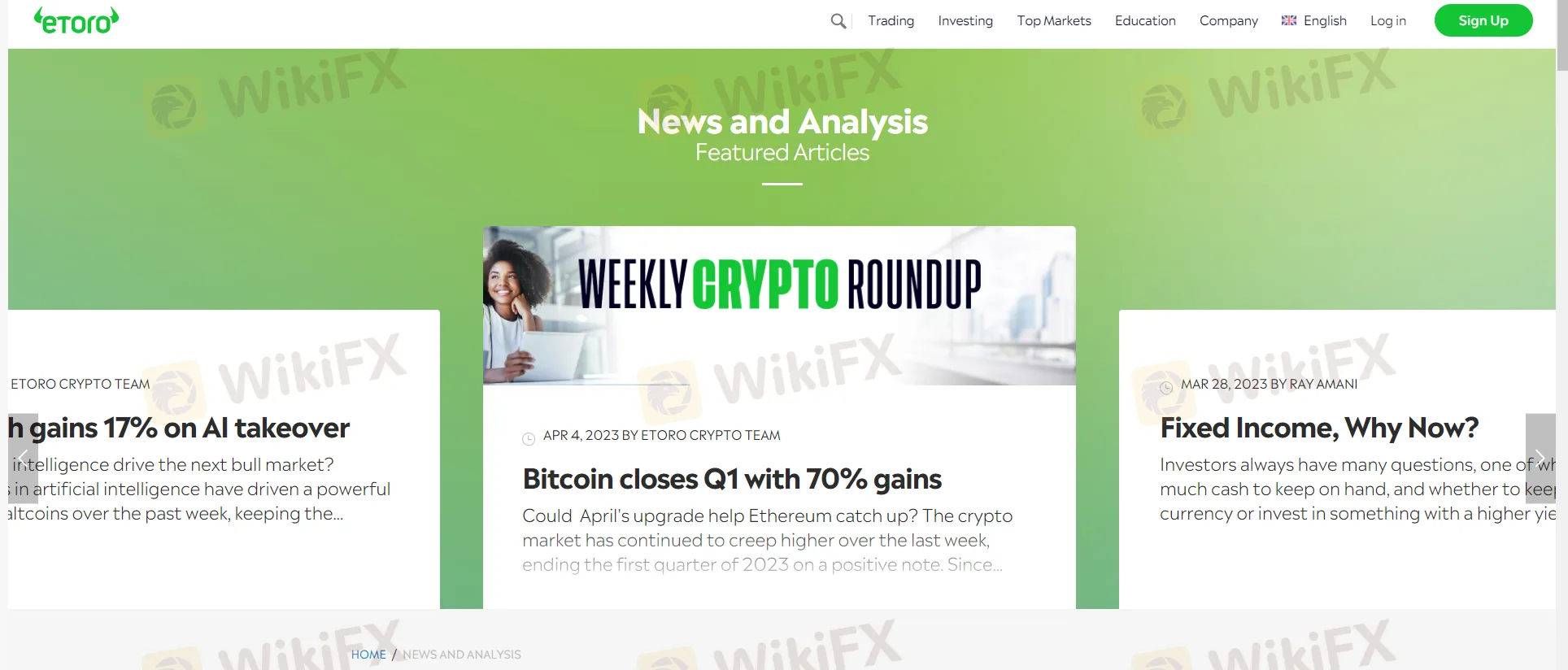
Blog: eToro has a blog that provides traders with the latest news, market analysis, and trading tips.
Virtual Portfolio: eToro offers a virtual portfolio feature that allows traders to practice trading without risking real money. This is a great way for beginners to gain experience and test out their trading strategies before trading with real money. Here is an instructional video for users to know clearly what Virtual Portfolio is:https://www.youtube.com/watch?v=GWK7uQ98KpM.
Overall, eToro is a reputable and user-friendly online trading platform that offers a wide range of financial instruments and trading options to its clients. Its innovative social trading features, intuitive platform, and excellent customer service make it an attractive choice for both beginner and experienced traders. However, it does have some drawbacks, such as relatively high fees, limited research tools, and a lack of advanced charting capabilities.
FAQs
Q: Is eToro a regulated broker?
A: Yes, eToro is a regulated broker. It is authorized and regulated by the Cyprus Securities and Exchange Commission (CySEC) in Europe, the Financial Conduct Authority (FCA) in the UK, and the Australian Securities and Investments Commission (ASIC) in Australia.
Q: What trading instruments are available on eToro?
A: eToro offers a wide range of trading instruments, including stocks, ETFs, cryptocurrencies, forex, commodities, and indices.
Q: What is the minimum deposit required to open an account on eToro?
A: The minimum deposit required to open an account on eToro varies depending on your location and the type of account you choose. For most countries, the minimum deposit is $500.
Q: Does eToro offer a demo account?
A: Yes, eToro offers a demo account that allows you to practice trading with virtual funds. The demo account is free and can be used for an unlimited period of time.
Q: What is eToro's customer support like?
A: eToro's customer support is available 24/5 and can be reached through email, live chat, and phone. They also have a comprehensive help center and a community forum where you can get answers to common questions and connect with other traders.
| Saxo Review Summary in 10 Points | |
| Founded | 1992 |
| Headquarters | Hellerup, Denmark |
| Regulation | ASIC, FCA, FSA, SFC, BDF, CONSOB, FINMA, MAS |
| Market Instruments | Forex, stocks, futures, options, bonds, ETFs and CFDs |
| Demo Account | Available |
| Leverage | 1:100 |
| EUR/USD Spread | 0.4 pips |
| Trading Platforms | SaxoInvestor, SaxoTraderGO, SaxoTraderPRO |
| Minimum deposit | HKD10,000 |
| Customer Support | 24/5 phone, email |
Saxo is a Danish investment bank founded in 1992. It provides online trading and investment services in multiple assets, including stocks, bonds, forex, options, futures, and CFDs, through its proprietary trading platforms. The bank operates in over 100 countries and has offices in major financial centers worldwide, including Copenhagen, London, Singapore, and Tokyo. Saxo Bank is regulated by several financial authorities, including the Danish Financial Supervisory Authority, the UK Financial Conduct Authority, and the Monetary Authority of Singapore. The bank also has a banking license and is a member of the Danish guarantee fund for depositors and investors.
Saxo is a multi-asset broker that offers access to a wide range of financial instruments, including forex, stocks, bonds, ETFs, futures, options, and more. The broker provides trading services through its advanced trading platforms and caters to both retail and institutional clients. Saxo operates as a hybrid broker, offering both direct market access (DMA) and market making services.
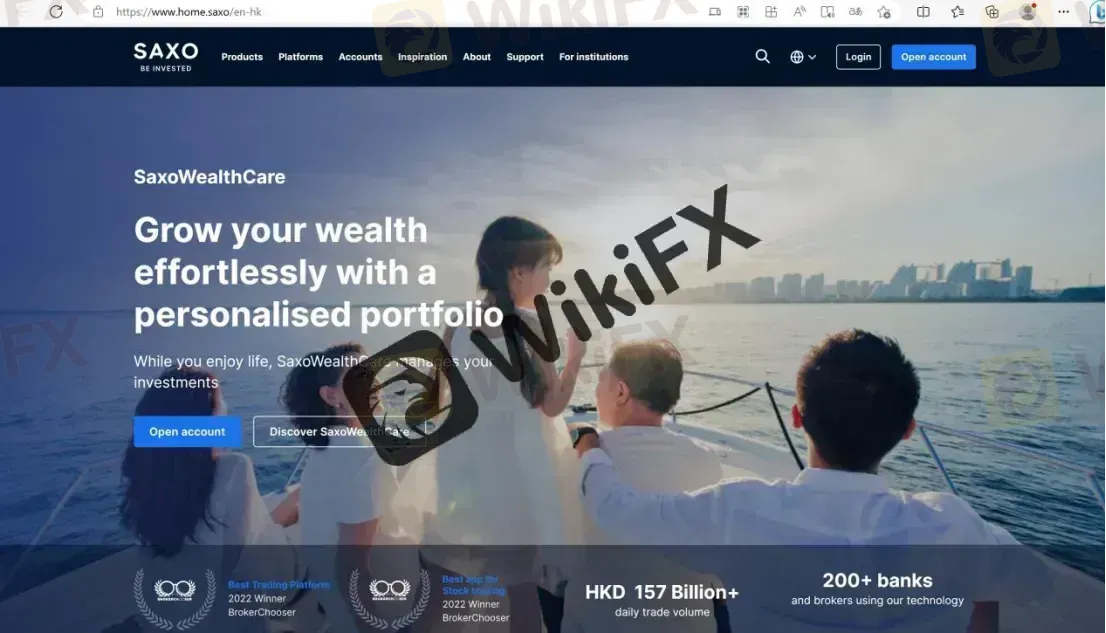
Saxo is a well-established and reputable broker with a range of trading platforms, instruments, and research tools.
However, the broker's high fees, minimum deposit requirement, and lack of negative balance protection may not be suitable for all traders. Additionally, some users have reported poor customer service experiences.
| Pros | Cons |
| • Wide range of financial instruments available | • High minimum deposit requirement |
| • Access to multiple markets and exchanges | • Fees and commissions may be higher than competitors |
| • User-friendly trading platforms | • Inactivity fee for dormant accounts |
| • Advanced trading tools and research | • Limited educational resources |
| • Regulated by top-tier financial authorities | • Limited customer support options |
Overall, it is important for traders to carefully consider their own needs and preferences before choosing Saxo or any other broker.
There are many alternative brokers to Saxo, each with their own unique features and benefits. Some popular alternatives include:
Interactive Brokers: A well-established broker with a wide range of trading instruments and low commissions.
TD Ameritrade: Offers a powerful trading platform and a variety of educational resources.
E*TRADE: A popular broker with a user-friendly platform and no account minimums.
IG: A global leader in online trading, offering a wide range of markets and advanced trading tools.
Plus500: A broker known for its user-friendly platform and tight spreads.
Ultimately, the best alternative broker for you will depend on your specific trading needs and preferences. It's important to research and compare different brokers to find the one that best fits your individual needs.
Saxo is a legitimate and reputable broker with a long track record of providing reliable trading services. It is regulated by top-tier financial authorities such as the Financial Conduct Authority (FCA) in the UK and the Danish Financial Supervisory Authority (DFSA). Additionally, Saxo is a member of several investor protection funds, such as the Financial Services Compensation Scheme (FSCS) in the UK, which protects clients' funds up to a certain amount in case of the broker's insolvency. Therefore, based on its regulation and investor protection measures, Saxo can be considered a legitimate broker.
Saxo is a regulated broker, with licenses from multiple reputable regulatory authorities and a long-standing history of providing financial services. The broker takes extensive measures to protect client funds, including segregating them from the company's assets and offering negative balance protection.
Additionally, Saxo offers various security features, such as two-factor authentication and encryption, to ensure secure trading.
More details can be found in the table below:
| Security Measures | Description |
| Regulation | FSA, FINMA, FCA, ASIC, DFSA |
| Segregated Accounts | Client funds are held in segregated bank accounts to protect them in case of insolvency. |
| Two-Factor Authentication | As an extra layer of security for client accounts |
| SSL Encryption | The Saxo website and platform are secured with SSL encryption to protect user data |
| Investor Compensation Scheme | A member of the Danish Investor Compensation Scheme, which provides additional protection to clients in case of insolvency |
It's important to note that while these measures provide some level of protection for clients, there is always some level of risk involved in trading financial instruments, and clients should always be aware of the risks before making any trades.
Based on the information available, Saxo appears to be a reliable and trustworthy broker. It is regulated by reputable authorities, has been in operation for several years. However, we also find that some users complain about their bad experience with Saxo. Take care!
Saxo offers a wide range of trading instruments across multiple asset classes, including
Forex: More than 180 currency pairs, including majors, minors, and exotics.
Stocks: Over 40,000 stocks from 36 global exchanges, including NYSE, NASDAQ, LSE, and more.
Futures: Over 200 futures and options across a variety of asset classes such as commodities, indices, and bonds.
Options: A wide range of options on stocks, indices, and futures.
Bonds: Trade a wide range of government and corporate bonds, including sovereign bonds from developed and emerging markets.
ETFs and CFDs: Access to over 3,000 ETFs and CFDs on indices, commodities, and stocks.

Saxo offers a range of account types designed to suit the different needs of its clients. The account types offered by Saxo are:
Classic Account: A traditional account with minimum funding of HKD10,000, which offers a range of trading tools and resources.
Platinum Account: A premium account for high-net-worth individuals, with a minimum funding requirement of HKD 1,500,000.
VIP Account: An exclusive account for ultra-high-net-worth individuals, with a minimum funding requirement of HKD 8,000,000.
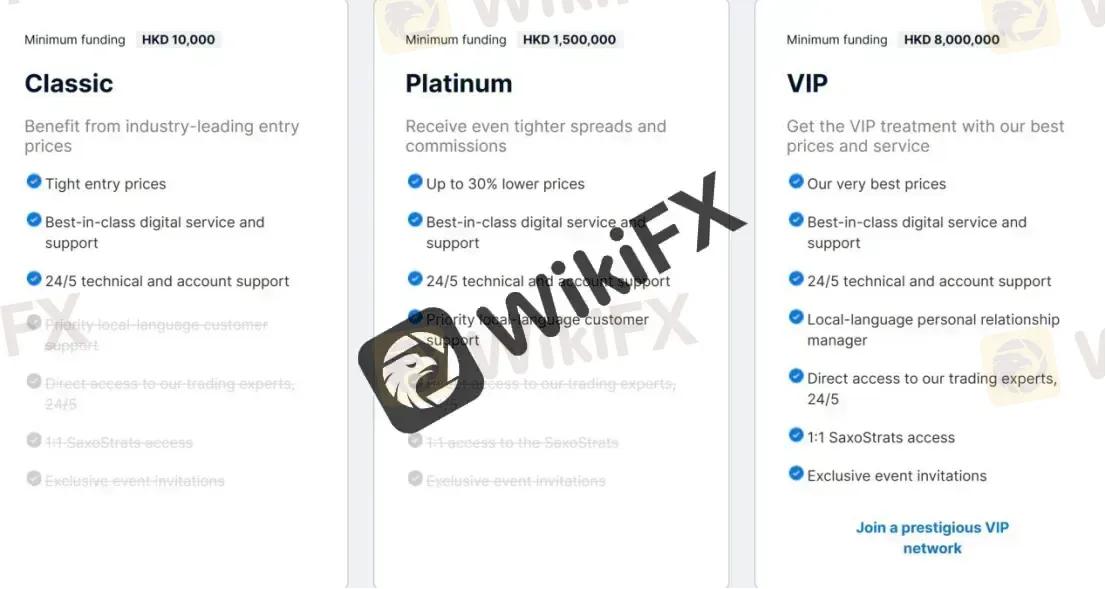
Islamic Account: A Sharia-compliant account for clients who follow Islamic finance principles.
Corporate Account: An account for companies, partnerships, and other legal entities.
Joint Account: An account for two or more individuals who want to trade together.
Each account type has its own unique features and benefits, such as lower pricing, higher leverage, and dedicated account managers. Saxo also offers a free demo account for clients to practice trading before committing to a live account.
It takes only about five minutes and a short online form to open an account. Clients will need to submit the standard verification documents required by KYC and AML rules, but the procedure should be quick and easy, and they will have access to their account in minutes.

Saxo offers leverage up to 1:100 for forex trading. Professional clients are entitled to leverage of 1:40 for the primary index, 1:33 for the secondary index, 1:33 for gold, 1:10 for equities, and 1:25 for commodities. Retail clients are entitled to leverage of 1:20 for the primary index, 1:10 for the secondary index, 1:20 for gold, 1:5 for equities and 1:10 for commodities.
However, the maximum leverage may vary depending on the instrument being traded and the client's location. It is important to note that trading with high leverage carries a higher level of risk, and traders should always exercise caution and use risk management strategies.
Saxo offers variable spreads, which means that the spreads can change depending on market conditions. The typical minimum spreads for popular instruments are as follows:
EUR/USD: 0.4 pips
USD/JPY: 0.6 pips
GBP/USD: 0.9 pips
AUD/USD: 0.6 pips
USD/CHF: 1.2 pips
USD/CAD: 1.5 pips
Saxo also charges commissions on some products, including stocks, ETFs, and futures. The commission fees vary depending on the specific market and the size of the trade. Commissions start at $3 per share for equities, as low as $0.85 per lot for commodities, and $3 per share for ETFs. Futures commissions start as low as $0.85 per lot, bonds commissions start at 0.05%, listed options commissions start as low as $1.25 per lot, and mutual funds commissions are $0 for custody and platform fees.
Below is a comparison table about spreads and commissions charged by different brokers:
| Broker | EUR/USD Spread | Commission per lot |
| Saxo | 0.4 pips | $3 |
| Interactive Brokers | 0.1 pips | $2 |
| TD Ameritrade | 0.7 pips | free |
| E*TRADE | 1.0 pips | free |
| IG | 0.75 pips | free |
| Plus500 | 0.8 pips | free |
Please note that commission rates may vary depending on the specific account type and trading volume. Additionally, some brokers may offer different spreads and commissions for other currency pairs or financial instruments. It's important to do your own research and carefully consider the costs and fees of each broker before making a decision.
Saxo offers its own proprietary trading platform called SaxoTraderGO. It is a web-based platform that can be accessed from any device with an internet connection. In addition to SaxoTraderGO, Saxo also offers SaxoTraderPRO, a desktop-based trading platform that is designed for advanced traders who require additional functionality.
SaxoTraderGO is highly customizable, allowing traders to arrange the interface to suit their preferences. It provides access to a wide range of trading tools and features, including charting tools, technical analysis indicators, and news feeds. The platform also includes a comprehensive range of order types, including market, limit, stop, and trailing stop orders.

SaxoTraderPRO is a professional-grade trading platform that offers advanced trading tools and features. It is designed for active traders and includes a range of tools that allow traders to monitor multiple markets and instruments simultaneously. The platform also includes advanced charting tools and a range of order types, including conditional orders and algorithmic trading capabilities.

Saxo also offers SaxoInvestor, which is a user-friendly trading platform suitable for beginner investors who are interested in a wide range of asset classes. It provides a simple and intuitive interface with basic research tools and features, making it easy for investors to buy and sell stocks, ETFs, bonds, and mutual funds. However, advanced traders may find the platform's lack of advanced tools and customization options limiting.

Overall, Saxo's trading platforms are well-designed, user-friendly, and offer a range of advanced features suitable for both beginner and experienced traders. See the trading platform comparison table below:
| Broker | Trading Platform |
| Saxo | SaxoTraderGO, SaxoTraderPRO, SaxoInvestor |
| Interactive Brokers | Trader Workstation, WebTrader, IBKR Mobile |
| TD Ameritrade | Thinkorswim, Web Platform, TD Ameritrade Mobile App |
| E*TRADE | Power E*TRADE, E*TRADE Web, E*TRADE Mobile |
| IG | IG Trading Platform, IG Web Platform, IG Trading App |
| Plus500 | Plus500 WebTrader, Plus500 Mobile App |
Saxo Bank supports several deposit and withdrawal methods, including Visa, MasterCard, Visa Debit, Visa Electron, MasterCard Debit, Maestro (for UK residents), Visa Dankort (for Denmark residents), Carte Bleue (for France residents). The company does not charge any fees for deposits and withdrawals, but if an investor makes a withdrawal request via manual withdrawal, a processing fee of 40 EUR will be charged.
Saxo has different minimum deposit requirements depending on the type of account you open and your country of residence. For example, the minimum deposit for the Classic account is HKD10,000.
However, these amounts can vary depending on your location and the specific account type. It's important to check with Saxo directly or on their website for the most up-to-date information on minimum deposit requirements.
| Saxo | Most other | |
| Minimum Deposit | HKD10,000 | $100 |
To withdraw funds from your Saxo account, you need to follow these steps:
Step 1: Log in to your Saxo account using your credentials.
Step 2: Click on the “Account” tab located on the top right corner of the screen.
Step 3: Click on “Withdraw Funds” from the account menu options.
Step 4: Select the account you wish to withdraw funds from, enter the amount you want to withdraw, and select the currency you want to withdraw in.
Step 5: Choose the preferred withdrawal method from the available options and provide the necessary details such as bank account information or credit/debit card information.
Step 6: Review the details of your withdrawal request and click on “Submit.”
Note that Saxo may require additional verification or documentation before processing your withdrawal request. The processing time for withdrawals may vary depending on the chosen method and your bank's processing time.
Swap costs, sometimes called overnight fees, are assessed on overnight open positions at Saxo Bank. These are expressed as interest and, depending on the trader's position, might be either charged to or credited to his or her account.
Traders of the Muslim faith, for whom the payment of interest is forbidden, are out of luck with Saxo Bank because they don't have the option of opening an Islamic account. With the wide variety of deposit currencies offered by Saxo Bank, customers will have a decreased chance of incurring conversion fees.
Amounts credited to your account are converted from their original currency at the mid-point FX Spot rate plus/minus the margins and spreads indicated below. This includes both trading fees and profits/losses incurred as a result of your trading activities.
Fees for account inactivity are also a reality for inactive accounts. After the initial six months, the rate increased to $150, which is quite a bit.
See the fee comparison table below:
| Broker | Deposit Fee | Withdrawal Fee | Inactivity Fee |
| Saxo | Free | Free | $150 after six months of inactivity |
| Interactive Brokers | Free | $0-$10 | $20/month if account balance < $2,000 |
| TD Ameritrade | Free | Free | Free |
| E*TRADE | Free | $0-$25 | Free |
| IG | Free | Free | $18/month after 24 months of inactivity |
| Plus500 | Free | Free | $10/month after 3 months of inactivity |
Saxo provides customer support through several channels, including phone, email, and social media (Facebook, LinkedIn, Twitter and YouTube). The broker offers 24/5 customer service in multiple languages, including English, Chinese, French, German, Italian, Japanese, Portuguese, and Spanish.
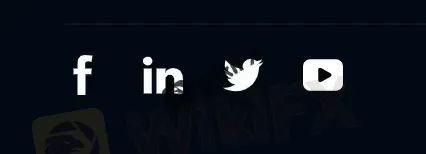
Saxo also provides a comprehensive help center on its website that includes an extensive knowledge base, FAQs, trading guides, and video tutorials. The broker's customer service is generally considered to be of high quality, with knowledgeable representatives who are responsive and helpful.
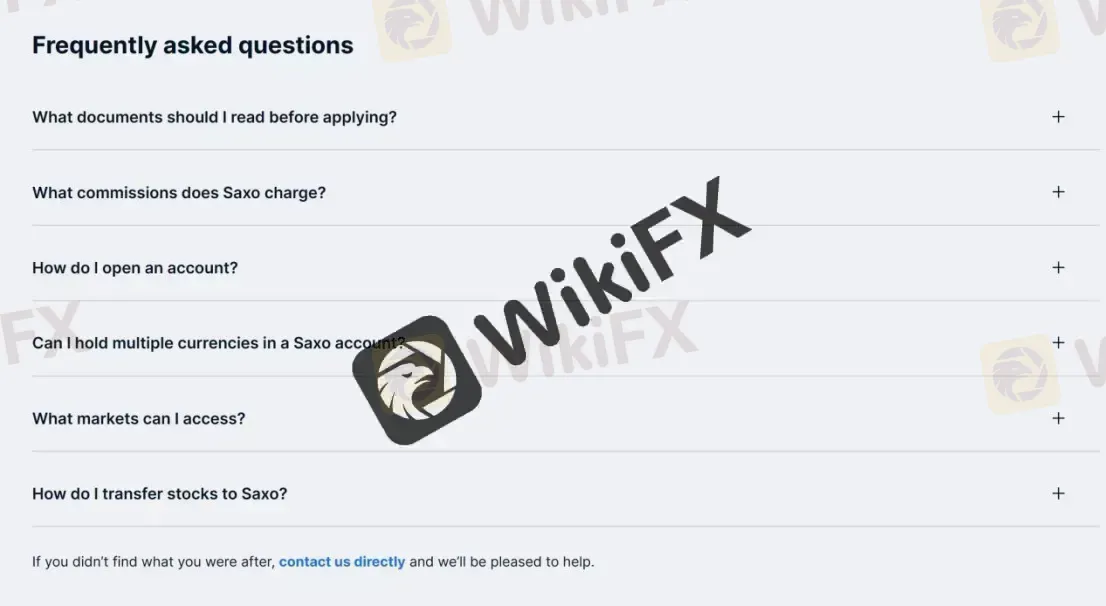
| Pros | Cons |
| • 24/5 customer service through multiple channels | • No 24/7 support service |
| • Dedicated support for VIP clients | • Phone support may have long wait times |
| • Extensive FAQ section on the website | • No dedicated account manager for non-VIP clients |
| • Personalized support for complex trading needs | • No local offices in some countries |
| • Multilingual support available for non-English users |
Note: These pros and cons are subjective and may vary depending on the individual's experience with Saxo's customer service.
Saxo Bank provides excellent market research in addition to a wealth of instructional resources like video courses, webinars, and events. Saxo Bank's SaxoStrats Experts group consists of eight analysts and strategists who are tasked with providing coverage of the various asset classes available to customers. It's apparent that this broker places a high value on its research team and recognizes the significance of this service, both for its clients and as a global investment bank. The classes are a wonderful way for newcomers to get their feet wet and become acquainted with the resources that are at their disposal. Videos are easy to follow and understand, helping novice traders quickly get up to speed and lay a solid groundwork from which to expand their knowledge. Saxo Bank specialists will be hosting webinars.
In conclusion, Saxo is a well-established broker. The broker offers a wide range of trading instruments, including forex, stocks, options, futures, and CFDs, and provides access to various markets worldwide. Saxo also offers an advanced trading platform and a user-friendly mobile app, making it easy for traders to access the markets on the go.
While Saxo has some of the highest fees in the industry, the broker's competitive spreads and tight execution make it a popular choice for traders. Additionally, Saxo's robust educational resources and customer support make it an ideal choice for traders of all skill levels who want to improve their knowledge and skills in trading.
Overall, Saxo is a multi-asset broker that offers a comprehensive suite of trading tools and services to help traders achieve their investment goals. However, potential clients should carefully consider the fees and minimum deposit requirements before opening an account. Also, dont forget check their user reviews on the Internet.
| Q 1: | Is Saxo regulated? |
| A 1: | Yes. It is regulated by ASIC, FCA, FSA, SFC, BDF, CONSOB, FINMA, MAS. |
| Q 2: | Does Saxo offer demo accounts? |
| A 2: | Yes. |
| Q 3: | Does Saxo offer the industry-standard MT4 & MT5? |
| A 3: | No. Instead, it offers SaxoInvestor, SaxoTraderGO, and SaxoTraderPRO. |
| Q 4: | What is the minimum deposit for Saxo? |
| A 4: | The minimum initial deposit to open an account isHKD10,000. |
| Q 5: | Is Saxo a good broker for beginners? |
| A 5: | Yes. It is a good choice for beginners because it is regulated well and offers various trading instruments with competitive trading conditions. Also, it offers demo accounts that allow traders to practice trading without risking any real money. |
To compare transaction costs across different brokers, our experts analyze the transaction-specific fees (such as spreads) and non-trading fees (such as inactivity fees and payment costs).
To get a comprehensive understanding of how cheap or expensive etoro and saxo are, we first considered common fees for standard accounts. On etoro, the average spread for the EUR/USD currency pair is -- pips, while on saxo the spread is --.
To determine the safety of our top brokers, our experts will consider many factors. This includes which licenses the broker holds and the credibility of these licenses. We also consider the history of brokers, because long-term brokers are usually more reliable and trustworthy than new brokers.
etoro is regulated by ASIC,CYSEC,FCA,FSC. saxo is regulated by ASIC,FCA,FSA,SFC,AMF,CONSOB,FINMA,MAS,AMF,DFSA,ASIC.
When our experts review brokers, they will open their own accounts and trade through the broker's trading platform. This enables them to comprehensively evaluate the quality, ease of use, and function of the platform.
etoro provides trading platform including -- and trading variety including --. saxo provides trading platform including VIP account,Classic account,Platinum account and trading variety including --.